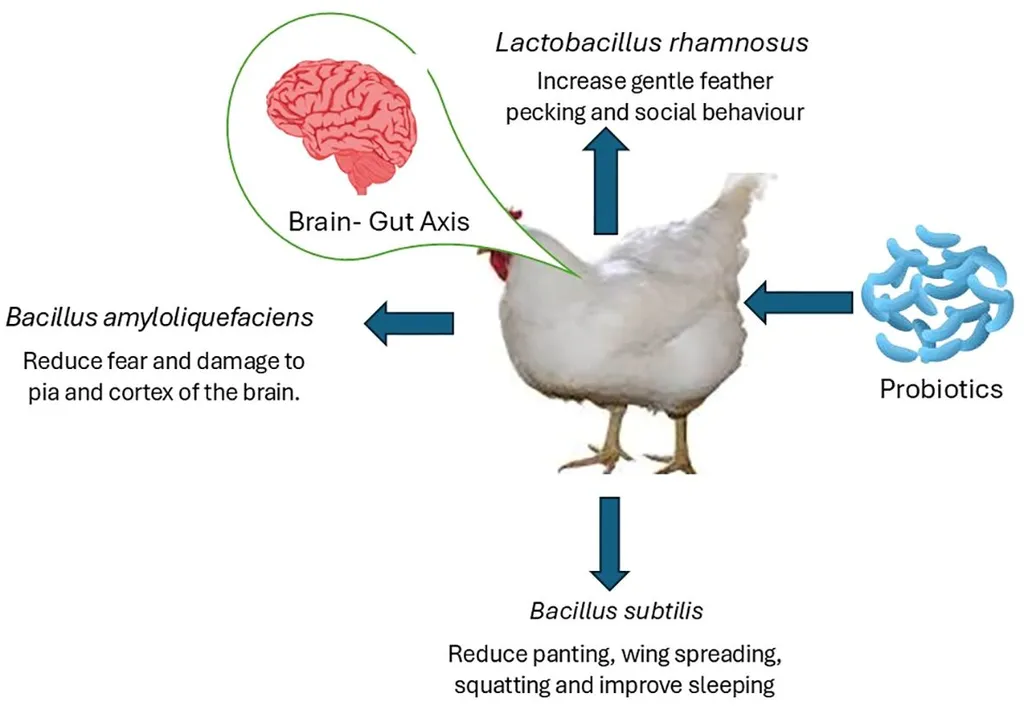In the quest to bolster poultry health and productivity, a groundbreaking study led by Navid Asgharian from the Department of Poultry Science at Tarbiat Modares University in Tehran, Iran, has shed new light on the synergistic effects of probiotics and vaccination. The research, published in the Journal of Applied Poultry Research, explores how probiotic supplements can enhance the effectiveness of the Newcastle disease (ND) vaccine in specific pathogen-free (SPF) chickens, offering promising insights for the poultry industry.
Newcastle disease is a highly contagious viral infection that poses a significant threat to poultry worldwide, causing substantial economic losses. Vaccination is a cornerstone of disease prevention, but its efficacy can be influenced by various factors, including the overall health and immune status of the birds. Asgharian’s study investigates whether probiotics, known for their beneficial effects on gut health, can also boost the immune response to ND vaccination.
The study involved 120 seven-day-old SPF chicks, divided into six groups to compare the effects of different treatments. One group served as the control, while others received either a probiotic supplement, the Razi Clone12IR vaccine, an imported Clone vaccine, or a combination of probiotics and either vaccine. The results were compelling. Chickens that received probiotics, either alone or in conjunction with vaccination, showed improved health parameters, including decreased cholesterol levels and increased concentrations of total protein, albumin, calcium, and phosphorus.
“Probiotics not only enhanced the birds’ overall health but also amplified the immune response to the ND vaccine,” Asgharian explained. “This dual benefit could be a game-changer for poultry farmers, offering a more holistic approach to disease prevention and management.”
The study also revealed that probiotics increased the antibody titer against Newcastle disease, indicating a stronger immune response. Additionally, the birds receiving probiotics exhibited greater villus height, crypt depth, and villus height/crypt depth ratio in the duodenum, which are indicators of improved gut health and nutrient absorption.
The implications of this research are far-reaching for the poultry industry. By incorporating probiotics into vaccination protocols, farmers could potentially enhance the efficacy of vaccines, leading to healthier flocks and reduced economic losses. This approach aligns with the growing trend towards sustainable and integrated poultry management practices.
Asgharian’s findings, published in the Journal of Applied Poultry Research (known in English as the Journal of Applied Poultry Research), open new avenues for research and development in the field. Future studies could explore the optimal dosages and strains of probiotics, as well as their interactions with other vaccines and health interventions.
In an industry where every advantage counts, this research offers a promising tool for improving poultry health and productivity. As the global demand for poultry products continues to rise, innovative solutions like this will be crucial in meeting the challenges of the future. The study underscores the importance of a multidisciplinary approach, combining immunology, nutrition, and veterinary science to achieve sustainable and efficient poultry production.

